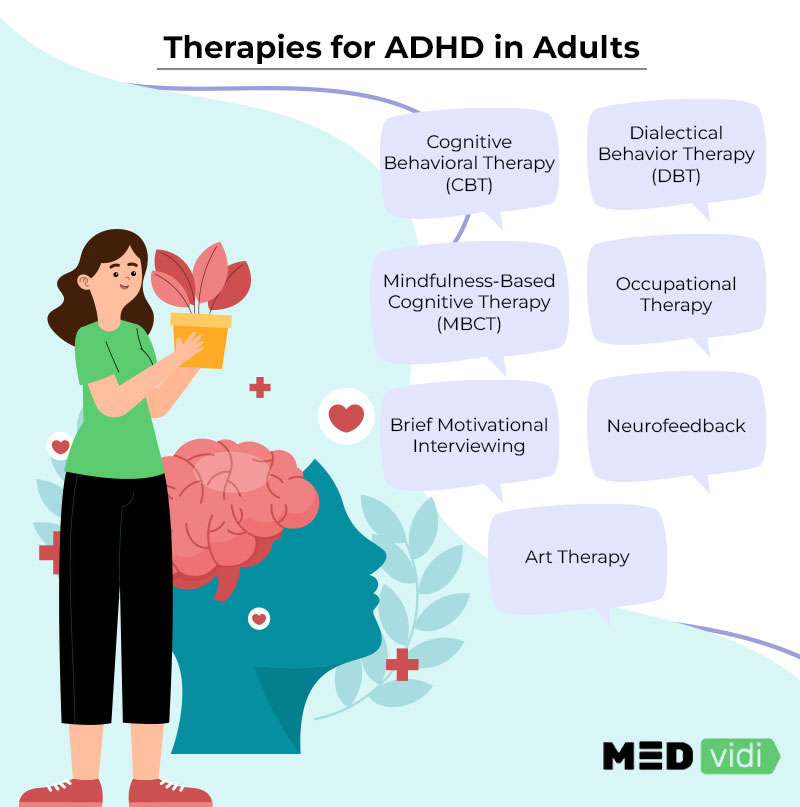ADHD Doctor Offering Professional Care Plans
The Advantages of Customized ADHD Therapy Prepare For Better End Results
The execution of personalized ADHD therapy strategies has actually become a pivotal approach in boosting therapeutic end results for individuals impacted by this problem. By acknowledging the unique symptoms of ADHD in everyone, these personalized treatments promote greater interaction and motivation, eventually resulting in much more efficient coping techniques. This customized method not just addresses scholastic and work obstacles yet also promotes boosted social relationships and general lifestyle. The real level of these advantages raises important inquiries about the particular components that add to lasting success and exactly how they can be maximized for varied populations.
Recognizing ADHD Irregularity
Although Attention-Deficit/Hyperactivity Condition (ADHD) is often perceived as a particular problem, its symptoms can vary considerably among people. Gender differences additionally play a function, as males are a lot more regularly identified with ADHD and usually show much more overt signs and symptoms, whereas females might present with much less apparent inattentiveness.
In addition, people with ADHD may experience a spectrum of psychological and behavior obstacles, such as stress and anxiety or opposite defiance, that can make complex medical diagnosis and therapy. The communication of these factors can bring about diverse experiences of ADHD, requiring a nuanced understanding of the problem. It is additionally worth noting that ADHD can present in different ways across various cultural contexts, influencing how signs are acknowledged and addressed. This understanding highlights the relevance of identifying ADHD as a diverse problem, which asks for customized methods to treatment that think about the special demands and experiences of each person.
Trick Elements of Customization
Personalized ADHD treatment plans are grounded in numerous vital elements that make certain efficient monitoring of the condition. First, a comprehensive analysis is critical, entailing standardized rating ranges, meetings, and behavior observations. This thorough evaluation allows medical professionals to understand the person's one-of-a-kind symptoms, staminas, and challenges.
Second, the involvement of numerous stakeholders, including moms and dads, instructors, and the person, adds to a holistic sight of the individual's requirements. Cooperation fosters a supportive atmosphere that can adapt to the individual's context and way of living.
Third, treatment plans must be versatile and adaptable, enabling modifications based on continuous responses and the individual's developing demands. This versatility makes it possible for the combination of numerous therapeutic methods, such as behavioral interventions, psychoeducation, and medicine management.
In addition, cultural and contextual factors must be taken into consideration. Acknowledging the person's background, worths, and preferences makes certain that the treatment matters and respectful.
Last but not least, routine follow-ups and assessments are necessary to check development and make required changes. By focusing on these key components, individualized ADHD therapy plans can dramatically boost the performance of interventions, resulting in enhanced results for individuals with ADHD.
Improved Interaction and Motivation
To properly advertise boosted involvement and inspiration in people with ADHD, it is important to include approaches that resonate with their interests and toughness. Individualized therapy plans that line up with a person's enthusiasms can lead to increased involvement in therapeutic tasks, fostering a sense of ownership and interest for the process.
Making use of interactive and innovative strategies can likewise considerably enhance motivation. Incorporating gamification elements or real-world applications of skills can make tasks more appealing and pertinent. This not just captures focus but likewise reinforces finding out via satisfying experiences.
In addition, establishing achievable and purposeful objectives tailored to the individual can reinforce inspiration. When people see their progression in the direction of directly considerable purposes, they are more probable to remain engaged. Regular feedback and recognition of achievements can additionally receive motivation, creating a favorable feedback postnatal psychosis loophole that urges continued effort.
Finally, cultivating an encouraging setting where people feel understood and valued can considerably influence their involvement levels. When treatment strategies are created collaboratively, including input from the individual, they are a lot more likely to feel spent in their journey, ultimately bring about enhanced end results in taking care of ADHD.
Improved Coping Approaches
Developing boosted dealing techniques is vital for people with ADHD, as it furnishes them with efficient devices to browse daily obstacles. A tailored treatment strategy enables for the recognition of particular coping systems customized to the individual's unique requirements and scenarios - ADHD treatment. Methods such as mindfulness, time administration abilities, and business strategies can be incorporated into everyday routines, fostering a sense of control and decreasing stress and anxiety
Mindfulness practices, including meditation and deep-breathing exercises, assistance people with ADHD concentrate their interest and manage their emotions. Time management approaches, such as utilizing timers trauma counseling near me or breaking tasks into smaller sized, workable steps, can mitigate feelings of bewilder. Furthermore, business tools like planners and checklists can enhance efficiency and liability.
Long-term Positive Results
Carrying out customized ADHD therapy plans can cause significant lasting positive end results for individuals. These customized strategies, which think about special symptoms, preferences, and life scenarios, help with much more reliable management of ADHD symptoms over time. By concentrating on the specific demands of the person, these plans boost adherence to treatment methods and foster greater engagement in restorative activities.

In addition, customized therapy strategies can dramatically minimize the threat of comorbid conditions, such as stress and anxiety and depression, which are commonly related to ADHD. Early intervention and consistent assistance help people construct resilience and coping methods, advertising overall psychological health.
Ultimately, the long-term favorable end results of customized ADHD treatment plans not just boost the lifestyle for people yet likewise add to their total health and success in numerous life domains. This all natural technique emphasizes the value of individualized care in taking care of ADHD successfully.
Conclusion
